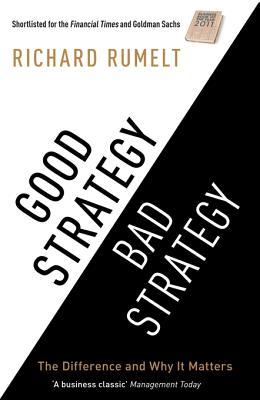More on this book
Community
Kindle Notes & Highlights
Read between
June 11 - July 1, 2023
negative working capital
Much of my work with MBA students and companies involves helping them uncover the hidden power in situations. As part of this process I often teach a case about Wal-Mart’s founding and rise, ending in 1986 with Sam Walton as the richest person in the United States.
And, most important, it argued that having a true competitive strategy meant engaging in actions that imposed exorbitant costs on the other side. In particular, it recommended investing in technologies that were expensive to counter and where the counters did not add to Soviet offensive capabilities.
Bad strategy is long on goals and short on policy or action. It assumes that goals are all you need.
DARPA’s strategy is more than a general direction. It includes specific policies that guide its everyday actions. For example, it retains program managers for only four to six years to limit empire building and to bring in fresh talent.
When a leader characterizes the challenge as underperformance, it sets the stage for bad strategy. Underperformance is a result. The true challenges are the reasons for the underperformance.
This cycling of results, with no ending point, is Condorcet’s paradox.
DEC’s chief executive, Ken Olsen, had made the mistake of asking the group to reach a consensus.
A great deal of strategy work is trying to figure out what is going on. Not just deciding what to do, but the more fundamental problem of comprehending the situation.
Utah program was focused on the practical challenge of rendering 3-D images and building flight simulators. The program produced an astounding number of computer graphics superstars, including John Warnock, founder of Adobe Systems; Nolan Bushnell, founder of Atari; Edwin Catmull, cofounder of Pixar; and Jim Clark,


